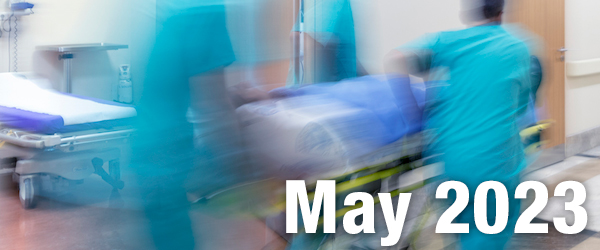St. Charles awards $100K to Central Oregon nonprofits
Grants are part of St. Charles Health System’s community benefit program
Schools, food pantries, houseless service providers and health and wellness programs for first responders are among 16 nonprofits in the region that were recently awarded community benefit grants totaling $102,500 from St. Charles Health System. These local nonprofits are helping meet the critical needs of individuals and families, providing services that are working to prevent or end homelessness, break the cycle of food insecurity and advance inclusion, diversity, equity and acceptance work across Central Oregon.
Organizations receiving the largest grants during the first funding cycle include:
- Family Access Network (FAN), which received $10,000 for FAN advocate services;
- The Giving Plate, which received $10,000 for its hunger relief program;
- MountainView Community Development, which received $10,000 to increase the safety of their safe parking program
- Redmond Fire and Rescue, which received $9,000 to implement a mental health peer support program for their first responders
- 509-J Online School, which received $7,500 for its weekend food program
“I’d like to thank St. Charles for their generous support of our members. I think the award aligns the mission of St. Charles and Redmond Fire and Rescue very well, and so I really appreciate the award and collaboration from St. Charles,” said Redmond Fire and Rescue Chief Pat Dale.
As a nonprofit organization, St. Charles is dedicated to giving back to the Central Oregon community in many ways, including through community benefit grants. By collaborating with other nonprofits in the area, St. Charles aims to implement and support best-practice and evidence-based initiatives that address community needs and improve the overall health of the region.
“All of these organizations provide a great service and St. Charles is very proud to be able to provide support,” said Carlos Salcedo, St. Charles’ manager of community partnerships. “The 16 organizations we’re funding this cycle are truly meeting the needs of our community.”
To learn more about St. Charles’ community benefit program or apply for our next grant cycle, visit our Community Benefits page.
About St. Charles Health System
St. Charles Health System, Inc., headquartered in Bend, Ore., owns and operates St. Charles Bend, Madras, Prineville and Redmond. It also owns family care clinics in Bend, Madras, Prineville, Redmond, La Pine and Sisters. St. Charles is a private, nonprofit Oregon corporation and is the largest employer in Central Oregon with more than 4,500 caregivers. In addition, there are more than 350 active medical staff members and nearly 200 visiting medical staff members who partner with the health system to provide a wide range of care and service to our communities.
###


